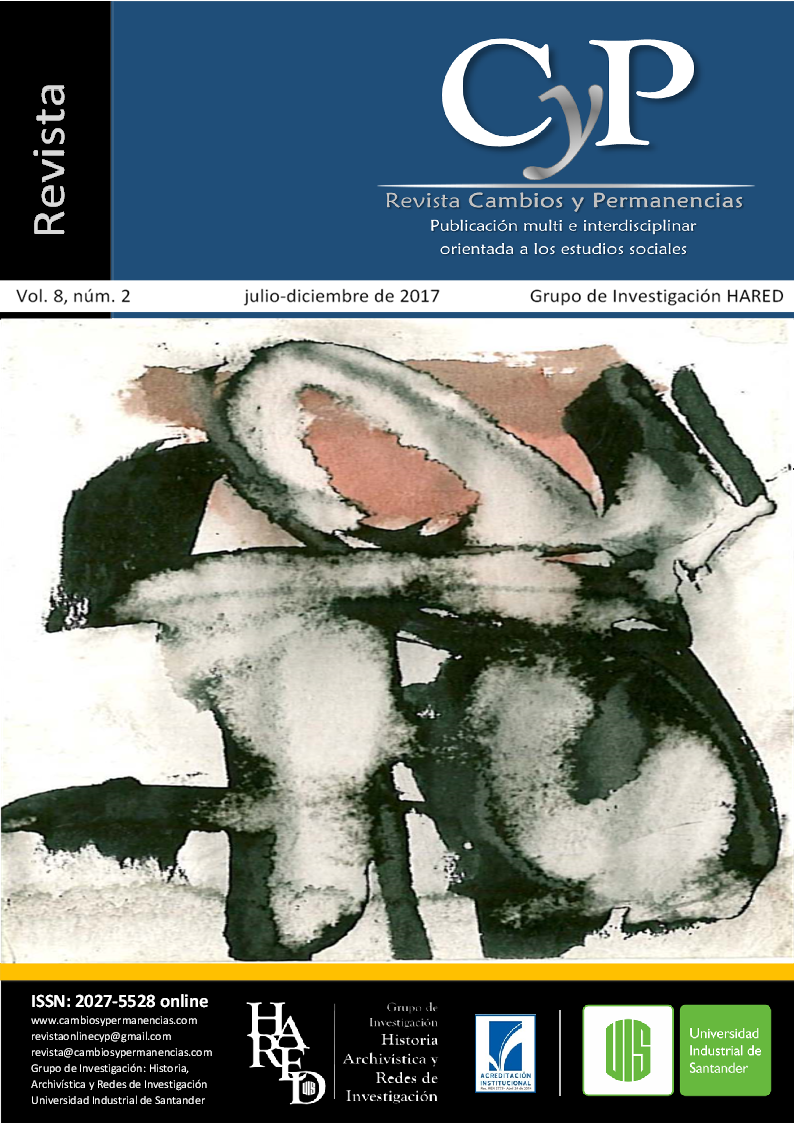Published 2017-12-15
Keywords
- Mechanistic paradigm,
- emerging paradigm,
- biolearnirg,
- pedagogical practices,
- pedagogical narration
How to Cite
Abstract
This research is part of the critical analysis of the pedagogic life history of its author, her work in the educational field during 40 years as teacher of basic and secondary school and university professor. It starts with the pedagogic narrative as a thoughtful means of collection and memory of her experiences; it shows the anchorage, twists and transitions within her pedagogical practice in the shift to an education based in the mechanistic paradigm to one reinterpreted in the emerging paradigm. Such analysis is oriented to the identification of the distinctive features of the pedagogical practice corresponding to each of the two paradigms used as reference. The set of narrations are organized progressively in three great moments of her life journey until the present: 1°- Beginning and schooling, 2°- Professional training and 3°- Advanced studies. Subsequently, the critical analysis enables the identification of the anchorage and, contrasting the moments from four categories (cardinal points) which are characteristic of every pedagogical practice: contents, relationship between the teacher and the student, methodology and evaluation, through a triangulation of the moments with each of the categories in analytical tables, and the discovery of the transitions emerging from the current moment of her educational work. Finally, the Closing and Opening remarks are presented, which conclude with new learning and a brief proposal of principles of education with sensitivity from an emerging perspective.
Downloads
References
Asensi, J. (2009). Memoria de un maestro. Memoria de la escuela. Tendencias pedagógicas 14(55).
Assman, H. (2002). Placer y ternura en educación. Madrid: Narcea
Basarab, N. (1996). La Transdisciplinariedad. Manifiesto. Caracas: Ediciones Du Rocher. Recuperado de http://www.ceuarkos.com/manifiesto.pdf
Bolívar, A. y Domingo, J. (2006). La investigación biográfica y narrativa en Iberoamérica: campos de desarrollo y estado actua. Forum Cualitative Social Research. 7(4).
Bruner, J. (2003). La fábrica de historias. Derecho, literatura, vida. Buenos Aires: Fondo de Cultura Económico.
Díaz, M. (1990). De la práctica pedagógica al texto pedagógico. Universidad Pedagógica Nacional. Recuperado de www.pedagogica.edu.co/storage/ps/articulos/pedysab01_05arti.pdf
Freire, P. (2012). Pedagogía de la autonomía. México: Siglo XXI
Freire, P. (s.f.). Hacia una pedagogía de la pregunta. Conversaciones con Antonio Faundez
Gutiérrez, F. (2011). Conversar de conversar. Costa Rica: Denes
Gutiérrez, F. y Prieto, D. (1993). La mediación pedagógica. Guatemala: IIME
Maturana, H. (2000). El árbol del conocimiento. Debate. Madrid
Morín, E. (1999). Los siete saberes necesarios para la educación del futuro.Francia: Organización de las Naciones Unidas para la Educación, la Ciencia y la Cultura UNESCO.
Morín, E. (2011). La vía para el futuro de la humanidad. Barcelona: Paidós.
Rivas, J. y otros. (2012). Historias de vida en Educación: sujeto, diálogo y experiencia. Barcelona: UB.
Rosas, L. (2001). La concepción pedagógica como categoría de análisis para el proceso de formación de maestros de las escuelas rurales. Centro de Estudios Educativos Revista Latinoamericana de Estudios Educativos, 2(2), 9-58. Recuperado de http://www.cee.iteso.mx/BE/RevistaCEE/t_2001_2_02.pdf.
Sandoval, C. (2002) Investigación Cualitativa. Bogotá: Arfo editores
Sonlleva, M. y Torrego, L. (2014) La escuela primaria del primer franquismo desde las voces del alumnado segoviano: una iniciación en la investigación educativa. Tendencias pedagógicas, (24). Recuperado de https://revistas.uam.es/tendenciaspedagogicas/article/viewFile/2107/2205


